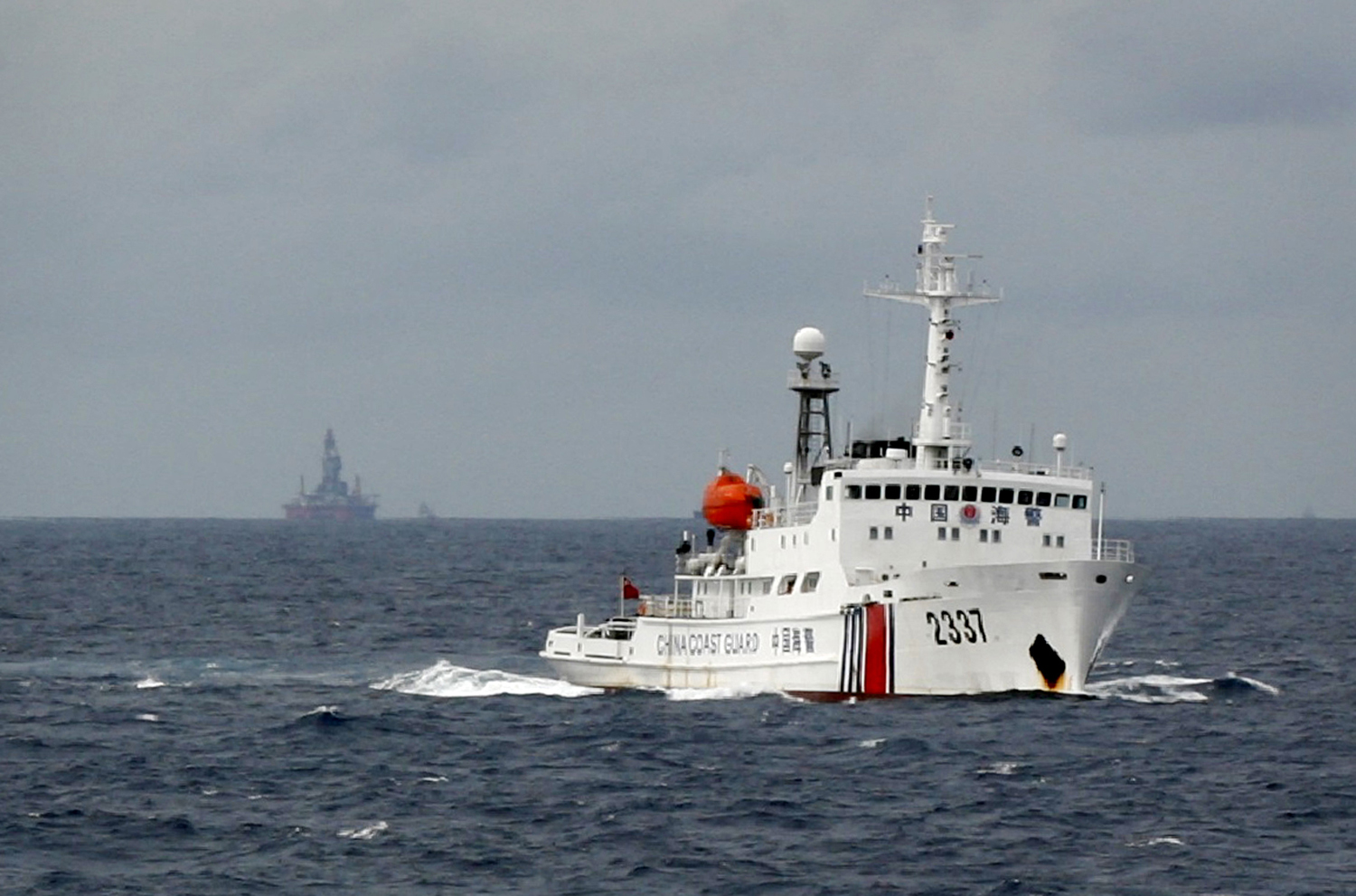
The rig is finally gone, but unlikely to be long forgotten.
On Tuesday, the state-backed China Oilfield Services Limited said the billion-dollar platform, which had been drilling in the heart of highly contested waters claimed by Vietnam, had “precisely extracted the related geological data as planned” and was being redeployed to sea blocks off China’s Hainan Island.
The Vietnamese coast guard confirmed the platform was being towed out of the disputed waters south of the Paracel Islands, claimed by Vietnam but occupied by the Chinese, late Tuesday night.
Since early May, the Haiyang Shiyou 981 rig had been anchored in waters that Vietnam claims fall well within its exclusive economic zone. Hanoi responded to the unannounced arrival by allowing the public to hold the first large-scale demonstrations in recent memory.
However, smoldering nationalist anger exploded into deadly bouts of rioting at industrial parks in the suburbs of Ho Chi Minh City and in central Vietnam’s Ha Tinh province in mid-May.
Factories were razed, several Chinese workers were killed and relations between the neighbors deteriorated to their lowest ebb since diplomatic ties were renewed in the early 1990s.
Beijing remained unmoved by Hanoi’s objections, despite continued protests from the highest levels of government.
“The relations are certainly damaged and the outlook is not encouraging, particularly as China has indicated it has plans to send out more oil rigs to disputed waters and has made provocative statements with respect to its plans in the Spratly chain,” Jonathan D. London, a professor and Vietnamese scholar at Hong Kong’s City University, tells TIME.
Tensions remain high. A study released by the Pew Research Center on Monday reported that 84% of the Vietnamese polled said they were concerned that conflict could erupt with their northern neighbor.
Professor Bruce Jacobs, an Asia expert at Australia’s Monash University, says the deployment of Haiyang Shiyou 981 must be viewed within the context of Beijing’s brazen maneuvers to consolidate its long-held, albeit highly disputed, grandiose maritime claims across the Asia-Pacific. “The oil rig was just part of that,” he says.
With China unrepentant, the U.S. has attempted to use the episode to strengthen relations with its Asian partnerships and position itself as an arbitrator in the Pacific.
Last week Michael Fuchs, U.S. Deputy Assistant Secretary of State for Strategy and Multilateral Affairs, called on all states claiming a stake in the South China Sea “to clarify and agree to voluntarily freeze certain actions and activities that escalate disputes and cause instability.”
In response, Beijing accused the U.S. of unsolicited meddling.
“We hope that countries outside the region can stay neutral, distinguish right from wrong and truly respect the joint efforts made by regional countries for peace and stability of the region,” said Hong Lei, China’s Foreign Ministry spokesperson, on Tuesday.
More Must-Reads From TIME
- The 100 Most Influential People of 2024
- The Revolution of Yulia Navalnaya
- 6 Compliments That Land Every Time
- What's the Deal With the Bitcoin Halving?
- If You're Dating Right Now , You're Brave: Column
- The AI That Could Heal a Divided Internet
- Fallout Is a Brilliant Model for the Future of Video Game Adaptations
- Want Weekly Recs on What to Watch, Read, and More? Sign Up for Worth Your Time
Contact us at letters@time.com